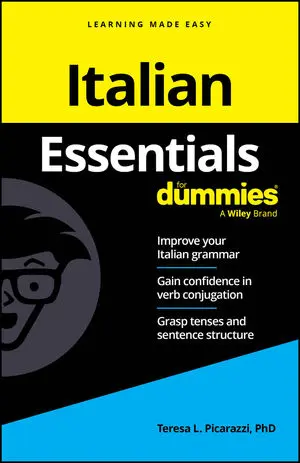Calendar terms
The days of the week (I giorni della settimana) aren't capitalized in Italian.lunedì (loo-neh-dee) (Monday)
martedì (mahr-teh-dee) (Tuesday)
mercoledì (mehr-koh-leh-dee) (Wednesday)
giovedì (zhoh-veh-dee) (Thursday)
venerdì (veh-nehr-dee) (Friday)
sabato (sah-bah-toh) (Saturday)O
domenica (doh-meh-nee-kah) (Sunday)Like the days of the week, the months of the year (I mesi della anno) aren't capitalized in Italian.)
gennaio (jehn-nah-yoh) (January)
febbraio (fehb-brah-yoh) (February)
marzo (mahr-tsoh) (March)
aprile (ah-pree-leh) (April)
maggio (mahj-joh) (May)
giugno (joo-nyoh) (June)
luglio (loo-lyoh) (July)
agosto (ah-gohs-toh) (August)
settembre (seht-tehm-breh) (September)
ottobre (oht-toh-breh) (October)
novembre (noh-vehm-breh) (November)
dicembre (dee-chehm-breh) (December)
Italians write dates in a different order than we do. Start with the day, then the month, and then the year. For example, to express January 08, 2009, you would write 8/1/09 instead of 1/8/09. If you write it 1/8/09, it would be assumed you were talking about August.
You can use the following phrases when discussing dates in Italian.-
Che giorno è oggi? (What day is today?)
-
Oggi è venerdì. (Today is Friday.)
-
Che giorno parti? [Informal]; Che giorno parte? [Formal] (What day are you leaving?)
-
Parto lunedì. (I'm leaving on Monday.)
-
In che mese vai in Italia? [Informal] (What month are you going to Italy?)
-
Ad agosto. (In August.)
-
Quando è il tuo compleanno? [Informal] (When's your birthday?)
-
Il sette novembre. (November 7.)
-
Che giorno è oggi? (What's the date?)
-
É il cinque settembre. (It's September 5.)
Telling time
The time of day can be described in general terms or specific times. You can use the follow words to describe time in a general sense.di mattina (in the morning)
del pomeriggio (in the afternoon)
di sera (in the evening)
di notte (in the middle of the night [until about5 a.m. or so])
giorno (johr-noh) [m] (day)
ieri (ee-eh-ree) (yesterday)
domani (doh-mah-nee) (tomorrow)
mezzogiorno (noon)
mezzanotte (midnight)
oggi (today)Telling time in Italian is really just a question of counting. Italy commonly uses a 24-hour clock. When using a 24-hour clock, just add 12 to every hour after noon, for example 6 p.m. becomes 18.
When you want to know a specific time of day, you can ask Che ore sono? (What time is it?). When expressing time between the hours, say the hour + minute, for example, e un quarto (and a quarter), e ventitrè (and 23), e mezzo (thirty). When you get past the half hour, start going the other say the number of minutes until the next hour, for example, say meno un quarto (a quarter to) and meno dieci (ten minutes to).
You can use the following phrases as a guide when talking about time in Italian.
-
É l'una. (It's 1 a.m.)
-
É l'una e dieci. (It's 1:10 a.m.)
-
É mezzogiorno. (It's noon.)
-
É mezzogiorno e mezzo. (It's 12:30 p.m.)
-
É mezzanotte. (It's midnight.)
-
Sono le due. (It's 2 a.m.)
-
Sono le due e un quarto. (It's 2:15 a.m.)
-
Sono le quindici. (It's 3 p.m.)
-
Sono le ventidue meno dieci. (It's 9:50 p.m.)
In Italian, 9:50 p.m. is spoken as ventidue meno dieci. (9:50 p.m.) However, informally, it is usually written as 9,50. Notice that the colon has been replaced with a comma.
-
A che ora parte il treno? (At what time does the train leave?)
-
Parte all'una. (It leaves at 1.)
-
A che ora inizia l'opera? (At what time does the opera begin?)
-
Inizia alle venti. (It begins at 8 p.m.)
-
A che ora chiude l'ostello? (At what time does the hostel close?)
-
Chiude a mezzanotte e mezzo. (It closes at 12:30 a.m.)






